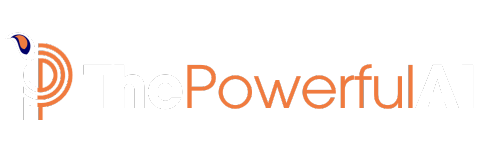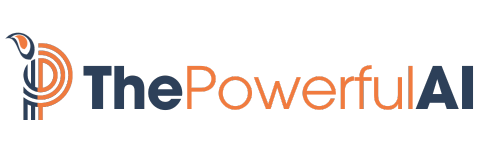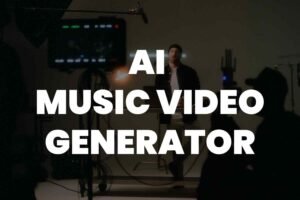According to the statistics for 2024, there is no evidence to suggest that artificial intelligence will lead to job loss. In fact, AI technologies such as AI, DS, and ML contribute to the creation of new job opportunities and decrease unemployment rates.
Generative AI has the potential to change the future of work in America, with certain jobs being in demand while others may be at risk. These statistics indicate that rather than causing job loss, AI can lead to long-term job growth by complementing human capabilities.
Impact Of Artificial Intelligence On Jobs
Artificial intelligence (AI) is expected to have a significant impact on jobs in the coming years. According to job loss statistics, over 23% of jobs are predicted to be affected by AI in 2024. While some jobs may be lost, AI also creates new job opportunities and contributes to decreased unemployment.
The Displacement Effect Of Ai
Artificial intelligence (AI) has been a topic of concern when it comes to its impact on jobs. Many fear that AI will lead to widespread job loss and unemployment. However, research shows that AI does not directly increase unemployment. In fact, it has the potential to create new job opportunities and decrease unemployment rates.
One of the main concerns surrounding AI is the displacement effect. This refers to the possibility of AI technologies replacing human workers, resulting in job loss. While some jobs may indeed become automated, it is important to note that AI also has the potential to enhance human capabilities and create new roles that require human involvement.
It is crucial to understand that the displacement effect of AI will vary across industries and job sectors. Certain jobs that involve repetitive and predictable tasks are more likely to be automated. However, jobs that require creativity, critical thinking, and emotional intelligence are less likely to be fully replaced by AI.
Job Opportunities Created By Ai
Despite concerns about job loss, AI also presents numerous job opportunities. As AI technologies continue to advance, new roles and positions will emerge. These roles may include AI specialists, data scientists, machine learning engineers, and AI consultants.
AI can assist humans in performing complex tasks more efficiently and accurately. This opens up avenues for collaboration between humans and machines, where humans can focus on tasks that require empathy, problem-solving, and decision-making skills. Industries such as healthcare, finance, and manufacturing can benefit from AI by streamlining processes, improving efficiency, and enhancing decision-making.
Furthermore, AI can also create jobs indirectly. As businesses adopt AI technologies, there will be a need for employees to manage and maintain these systems. Additionally, AI can stimulate economic growth and innovation, leading to job creation in related industries.
Job Loss Statistics
While the fear of job loss due to AI is understandable, it is important to analyze job loss statistics to gain a better understanding of the actual impact. According to various studies and predictions, some jobs are more susceptible to automation than others.
| Industry | Projected Job Losses |
|---|---|
| Manufacturing | 30% |
| Retail | 25% |
| Transportation | 20% |
| Customer Service | 15% |
| Administrative Support | 10% |
It is important to note that these statistics are projections and may vary. Additionally, job losses in certain industries may be offset by job gains in other sectors.
Overall, while AI may lead to the automation of certain jobs, it also presents new job opportunities and enhances existing roles. The key is to adapt and upskill to thrive in the era of AI.
Predictions And Perspectives On Ai Job Loss
Discover the latest predictions and perspectives on AI job loss with a comprehensive list of 23+ artificial intelligence and job loss statistics for 2024. Gain insights into which jobs are most exposed to AI and the potential long-term job growth it can lead to, rather than fearing its impact on employment.
Different Views On Ai And Unemployment
There are various perspectives on the impact of artificial intelligence (AI) on job loss. Some argue that AI will lead to widespread unemployment, while others believe that it will create new job opportunities. It is crucial to examine these different views to gain a comprehensive understanding of the potential effects of AI on the workforce.
According to a Pew Research report, new technologies like AI, data science (DS), and machine learning (ML) do not increase unemployment but rather create new job opportunities. This perspective suggests that AI will not cause significant job loss but will instead lead to job growth and a decrease in overall unemployment rates. It highlights how AI can introduce innovative roles and tasks that complement the capabilities of humans.
On the other hand, there are those who emphasize the negative impact of AI on employment. They argue that the advanced capabilities of AI systems might replace human workers in various industries, resulting in widespread job displacement. Critics of AI often raise concerns about the automation of repetitive and routine tasks, which are traditionally performed by workers in sectors like manufacturing, logistics, and customer service.
It’s important to note that there are opposing viewpoints on the potential impact of AI on unemployment. While some experts believe that AI will create new job opportunities and lead to job growth, others express concerns about the automation of certain tasks and subsequent job loss. It is crucial to further investigate and analyze these perspectives to understand the potential implications of AI on the future of work.
Positive Outlook On Future Job Growth
Despite concerns about job loss, there is a positive outlook regarding future job growth in the age of AI. While some job roles may be automated or substituted by AI, numerous new job opportunities will emerge alongside these advancements. With the increased adoption of AI technologies, skilled professionals will be required to develop, implement, and manage these systems. Additionally, industries such as healthcare, cybersecurity, and renewable energy are expected to experience substantial growth, creating new jobs that leverage AI technologies.
McKinsey & Company highlights the potential of generative AI to change the future of work in America. While some jobs may become obsolete, new roles that require human creativity, problem-solving, and emotional intelligence will come to the forefront. These unique abilities cannot be replicated by AI systems, ensuring that certain job sectors will continue to rely heavily on human expertise.
Furthermore, Forbes stresses the long-term job growth that AI will lead to. It emphasizes that AI will not replace certain job roles that require complex decision-making, critical thinking, and interpersonal skills. Professions such as healthcare providers, educators, artists, and social workers all involve tasks that are highly unlikely to be automated completely. Therefore, while AI may change the nature of work, it will also drive innovation, leading to the creation of new and meaningful job opportunities.
Jobs That Ai Cannot Replace
There are specific job roles that AI cannot replace due to their reliance on uniquely human qualities and expertise. As mentioned earlier, professions requiring creativity, critical thinking, and complex decision-making are less susceptible to automation. Examples of such jobs include:
- Healthcare providers: Doctors, nurses, and other medical professionals require vast knowledge, expertise, and empathy that AI systems cannot replicate.
- Educators: Teachers play a crucial role in shaping the minds of future generations. Their ability to communicate complex ideas, provide emotional support, and adapt their teaching methods is invaluable.
- Artists: Artists bring unique creativity and originality to their craft, expressing human emotions and experiences in ways that AI cannot replicate.
- Social workers: These professionals provide vital support to individuals and communities in need, relying on their empathy, communication skills, and deep understanding of human behavior.
It is important to acknowledge that AI has limitations and that certain job roles will always require the human touch. While AI can streamline processes and improve efficiency, it cannot completely replace the nuanced skills and qualities that make us uniquely human.
The Future Of Work In The Age Of Ai
In the age of AI, job loss statistics predict that over 23+ jobs will be impacted by artificial intelligence by 2024. However, it is important to note that AI also creates new job opportunities and decreases unemployment, contrary to popular belief.
The future of work is evolving, and AI is playing a significant role in shaping it.
Changing Landscape Of Jobs
In the age of AI, the landscape of jobs is rapidly evolving. Artificial intelligence technologies, such as machine learning and deep learning, are being implemented across various industries, leading to significant changes in the types of jobs available and the skills required to succeed in the workforce. Traditional jobs that involve repetitive tasks are at risk of being replaced by automation, while new roles are emerging that require expertise in AI and data analysis. It is crucial for individuals to stay adaptable and continuously upskill to remain relevant in this changing job market.
Ai’s Impact On Employment
The impact of AI on employment is a topic of concern and debate. While some argue that AI will lead to mass job loss, it’s important to note that historical evidence suggests otherwise. New technologies, including AI, have historically created more job opportunities than they have eliminated. AI is expected to augment human capabilities rather than replace them entirely. It will automate certain tasks, allowing humans to focus on higher-level cognitive activities that require creativity, critical thinking, and emotional intelligence. Therefore, AI’s impact on employment is not solely negative but rather transformative in nature.
Potential Risks And Benefits Of Ai
Risks:
- The risk of job displacement: As AI technology advances, there is a possibility of certain job roles becoming obsolete. It is crucial for individuals to prepare for this by acquiring new skills and embracing lifelong learning.
- Algorithmic bias: AI systems are only as good as the data they are trained on. If the data used to train AI algorithms is biased, it can lead to discriminatory outcomes and perpetuate inequality.
- Privacy concerns: The widespread use of AI requires the collection and analysis of massive amounts of data. This raises concerns about privacy and data security, as well as the potential for misuse of personal information.
Benefits:
- Increase in productivity: AI has the potential to enhance productivity by automating repetitive and mundane tasks, allowing employees to focus on more complex and value-added activities.
- Creation of new job opportunities: While some jobs may be replaced by AI, new roles will also emerge to support the development and implementation of AI technologies. These roles require specialized skills and expertise.
- Improved decision-making: AI can analyze vast amounts of data and provide insights that can aid in decision-making processes, leading to better outcomes in various fields, including healthcare, finance, and manufacturing.
![23+ Artificial Intelligence And Job Loss Statistics [2024]](https://bloximages.newyork1.vip.townnews.com/wxow.com/content/tncms/assets/v3/editorial/f/54/f54bc0ef-6d67-580d-b7a1-9cdab9de3d96/648b13c4f03dc.image.jpg?resize=400%2C225)
Credit: www.wxow.com
Frequently Asked Questions Of 23+ Artificial Intelligence And Job Loss Statistics [2024]
How Many Jobs Lost To Ai In 2023?
According to available data, there is no specific number on how many jobs will be lost to AI in 2023. AI technologies create new job opportunities and decrease unemployment. However, some jobs may be at risk due to the implementation of AI.
How Many Jobs Will Be Lost To Ai By 2025?
It is difficult to accurately predict the exact number of jobs that will be lost to AI by 2025. However, AI is expected to disrupt certain industries and job roles, leading to job displacement. On the other hand, it also creates new job opportunities and decreases unemployment in other areas.
What Percentage Of Jobs Will Be Lost To Ai?
AI is not expected to result in job losses. Instead, it creates new job opportunities and reduces unemployment. It is a misconception that AI will lead to increased unemployment.
Is Artificial Intelligence Increasing Unemployment?
Artificial intelligence does not increase unemployment. Instead, it creates new job opportunities and reduces unemployment. AI, along with other technologies like data science and machine learning, contribute to the “displacement effect” where new roles are created to support and enhance AI-driven systems.
Conclusion
The statistics surrounding artificial intelligence and job loss in 2024 are not as dire as some may anticipate. Contrary to popular belief, AI technologies such as machine learning and data science are not increasing unemployment rates. In fact, they are creating new job opportunities and decreasing unemployment.
While there may be job displacement in certain sectors, overall, AI has the potential to lead to long-term job growth. The future of work in America will be shaped by generative AI, which will create new demand for certain jobs while transforming others.


![23+ Artificial Intelligence And Job Loss Statistics [2024]](https://thepowerfulai.com/wp-content/uploads/2023/12/23-artificial-intelligence-and-job-loss-statistics-2024.jpg)


